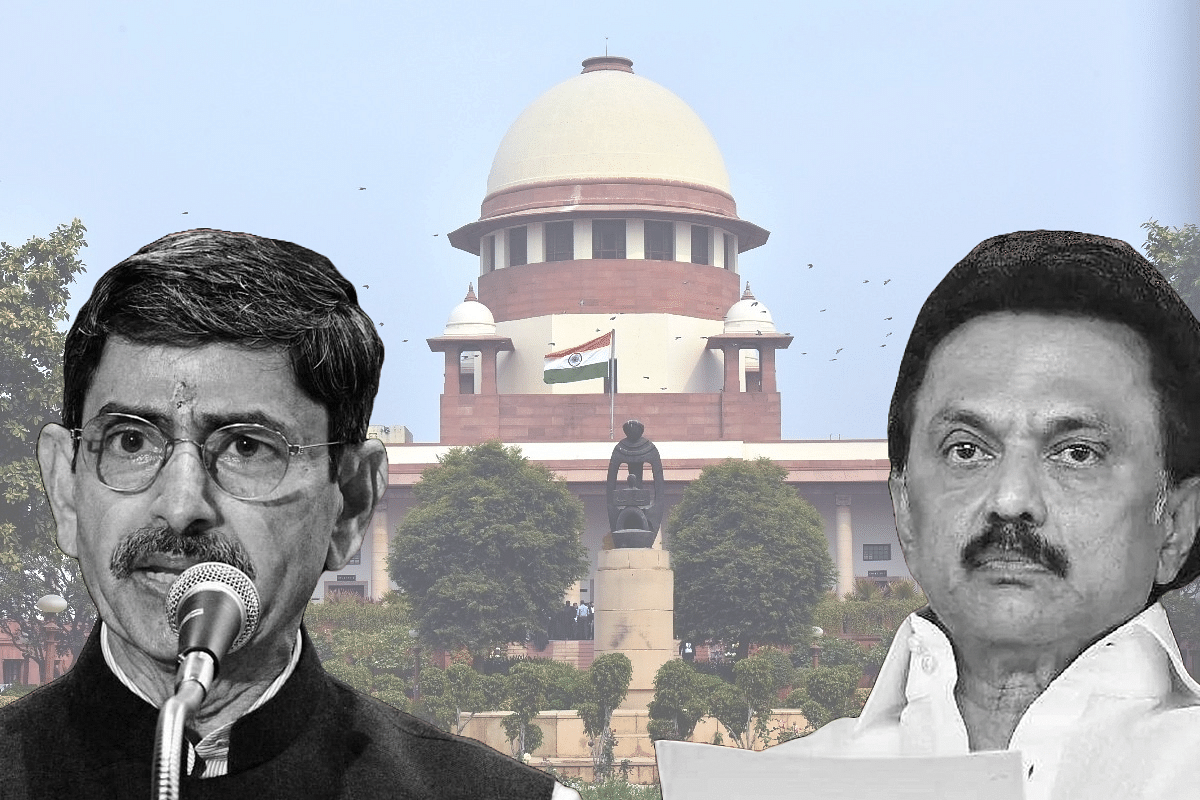Legal
Tamil Nadu: SC Urges CM And Governor To Resolve Deadlock Over Bills, Advocates Tea Meeting To Facilitate Dialogue

The DMK government had approached the Supreme Court over Governor RN Ravi's delay in giving assent to Bills
On 13 December, the Supreme Court encouraged Tamil Nadu Chief Minister M K Stalin and Governor R N Ravi to engage in a tea meeting to address the impasse surrounding the clearance of 10 crucial bills.
The court, led by Chief Justice D Y Chandrachud, stressed the importance of maintaining communication for the smooth functioning of government affairs.
The Tamil Nadu government, representing the case before the bench, disclosed that the Governor had extended an invitation for tea, which the Chief Minister accepted.
Chief Justice Chandrachud emphasised the need for breaking the deadlock and fostering an ongoing channel of communication between the Chief Minister and the Governor, emphasising that governance should not be hindered by such disputes.
Senior advocates A M Singhvi, P Wilson, and advocate Sabarish Subramanian, representing Tamil Nadu, acknowledged that the tea meeting might help ease tensions but cautioned that it might not resolve the constitutional issues triggered by the Governor's decision to refer the bills, re-enacted by the state assembly, to the President instead of granting assent under Article 200 of the Constitution.
While acknowledging the symbolic nature of the tea meeting, Singhvi and Wilson maintained that the constitutional problem persisted. They requested the court to defer the case until January and advocated for maintaining the status quo to prevent further complications.
The court expressed reluctance to issue injunctive orders on the President but directed Attorney General R Venkataramani to explore the matter.
The Chief Justice mentioned ongoing efforts to find a resolution and highlighted the Attorney General's involvement in mediating disputes between the Governor and Chief Minister in West Bengal.
The Supreme Court had previously issued notice to the Governor on 10 November in response to a writ petition filed by the state government, accusing Ravi of delaying consent to the bills.
The Governor had referred the bills to the President on 28 November, despite the state assembly re-enacting them without amendments on 18 November.
The court, in previous sessions, underscored the Governor's limited choices under Article 200 of the Constitution and cited a precedent regarding delays in assenting to bills by a governor.
Support Swarajya's 50 Ground Reports Project & Sponsor A Story
Every general election Swarajya does a 50 ground reports project.
Aimed only at serious readers and those who appreciate the nuances of political undercurrents, the project provides a sense of India's electoral landscape. As you know, these reports are produced after considerable investment of travel, time and effort on the ground.
This time too we've kicked off the project in style and have covered over 30 constituencies already. If you're someone who appreciates such work and have enjoyed our coverage please consider sponsoring a ground report for just Rs 2999 to Rs 19,999 - it goes a long way in helping us produce more quality reportage.
You can also back this project by becoming a subscriber for as little as Rs 999 - so do click on this links and choose a plan that suits you and back us.
Click below to contribute.
Latest